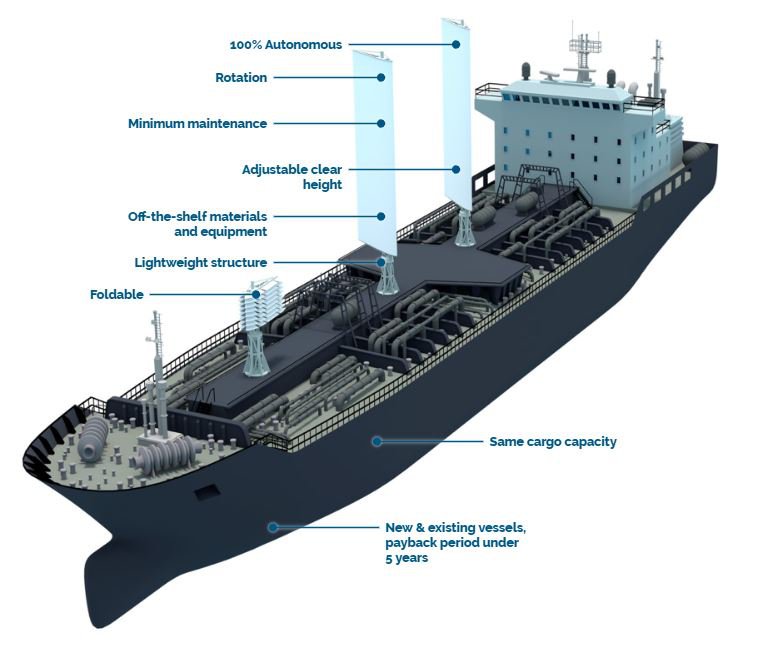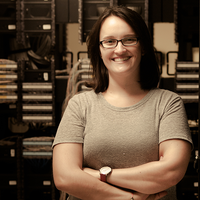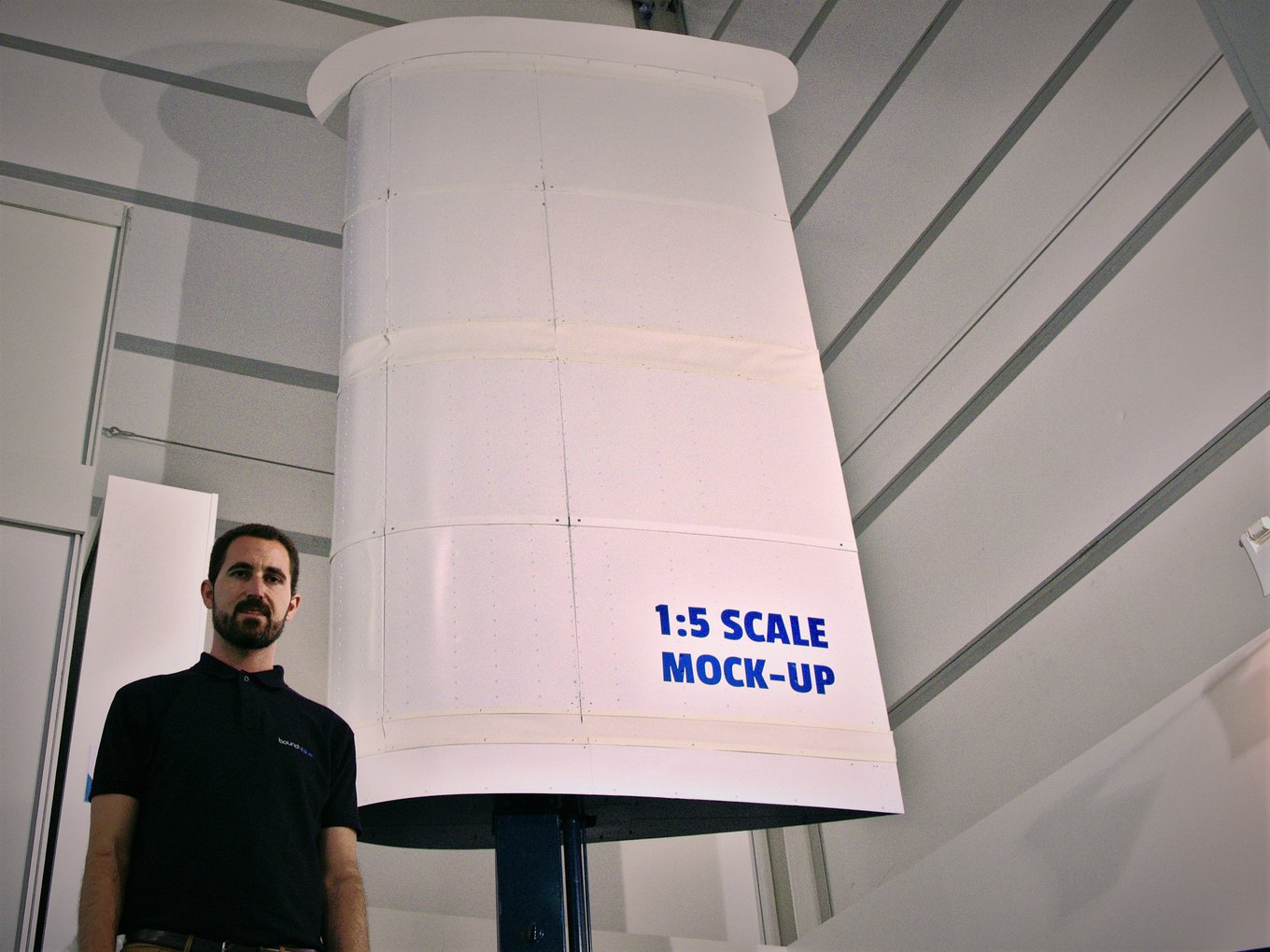Maritime transport accounts for around 80% of transport at the global level, according to the International Maritime Organization. Thanks to their high energy efficiency for moving large volumes of freight, fleets of ships transport enormous amounts of goods from one country to another, crossing seas and oceans every day. But there is a problem. The high levels of pollution that vessels produce in the water and the air cause 60,000 deaths from cardiopulmonary conditions and lung cancer, each year around the world.
During his time as a student at the Polytechnic University of Catalonia (Spain), the now aerospace engineer David Ferrer-Desclaux was already wondering why ships did not use sail systems based on aircraft technology to reduce fuel consumption. This curiosity, shared with two fellow students, has led them to found bound4blue. Thanks to his proposal, Ferrer-Desclaux has just become one of the winners of Innovators Under 35 Europe 2018 from MIT Technology Review.
The young man says that maritime transport figures "will not reduce and will continue to grow”. To fight against their impact, Ferrer-Desclaux has worked with the team at bound4blue to create a rigid system of folding sails, similar to the wing of an aeroplane, which can be positioned vertically and can adapt to ships’ requirements. Their ingenious tailor-made sails fold and orient themselves completely autonomously to maximise their effect at any given moment. Thanks to these characteristics, the system can help vessels to save between 10% and 40% of fuel. For the average ship, this amounts to a saving of “almost a million euros per year," says its inventor. In effect, the company aims to ensure that their customers’ return on investment comes in less than five years.

Photo: The system can help vessels to save between 10% and 40% of fuel and has a payback period of less than five years. Credit: bound4blue
The costs to mobilise fleets of ships are substantial and a high percentage comes from the most common fuel, heavy fuel oil, which contains large amounts of sulfur and other highly polluting particles. In 2020 legislation to stop using it and begin to use diesel will come into force. Diesel is considered to be 'cleaner', but it is equally harmful to the planet and is more costly. This situation is critical to the maritime industry because "a boat can consume up to a 110 tons per day of fuel, which can represent up to an 80% of the operating costs of the vessel", reiterates the innovator.
With the aim of addressing these issues, Ferrer-Desclaux decided to create this rigid system of sails, focusing on three aspects. The first was the design, which is modular so that the sails are adjustable to different sizes of vessels. The second focused on choosing how to configure the system, taking into account factors such as the route, speed, wind, and power. And the third, in managing their production right up to assembly.
The technology has already been developed and tested in small-scale prototypes on the ground, and will now move on to the phase of integrating units on a large scale on boats. This year they already finalised agreements with four shipowners to place demonstrators on several kinds of vessels. With this strategy, they hope to win more customers.
Alain Picasso, director of the Massif Central Development Agency of EDF in France, president of the incubator InNorveyA and a member of the jury for Innovators Under 35 Europe 2018, considers that it is "a very ingenious solution to meet the challenge of reducing fuel consumption in order to comply with new regulations, and to reduce costs and CO2 emissions”.
By Daniela Perdomo
Translation: Lisa Rushforth





